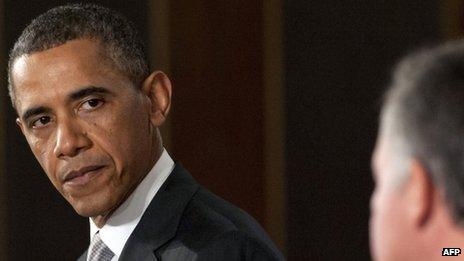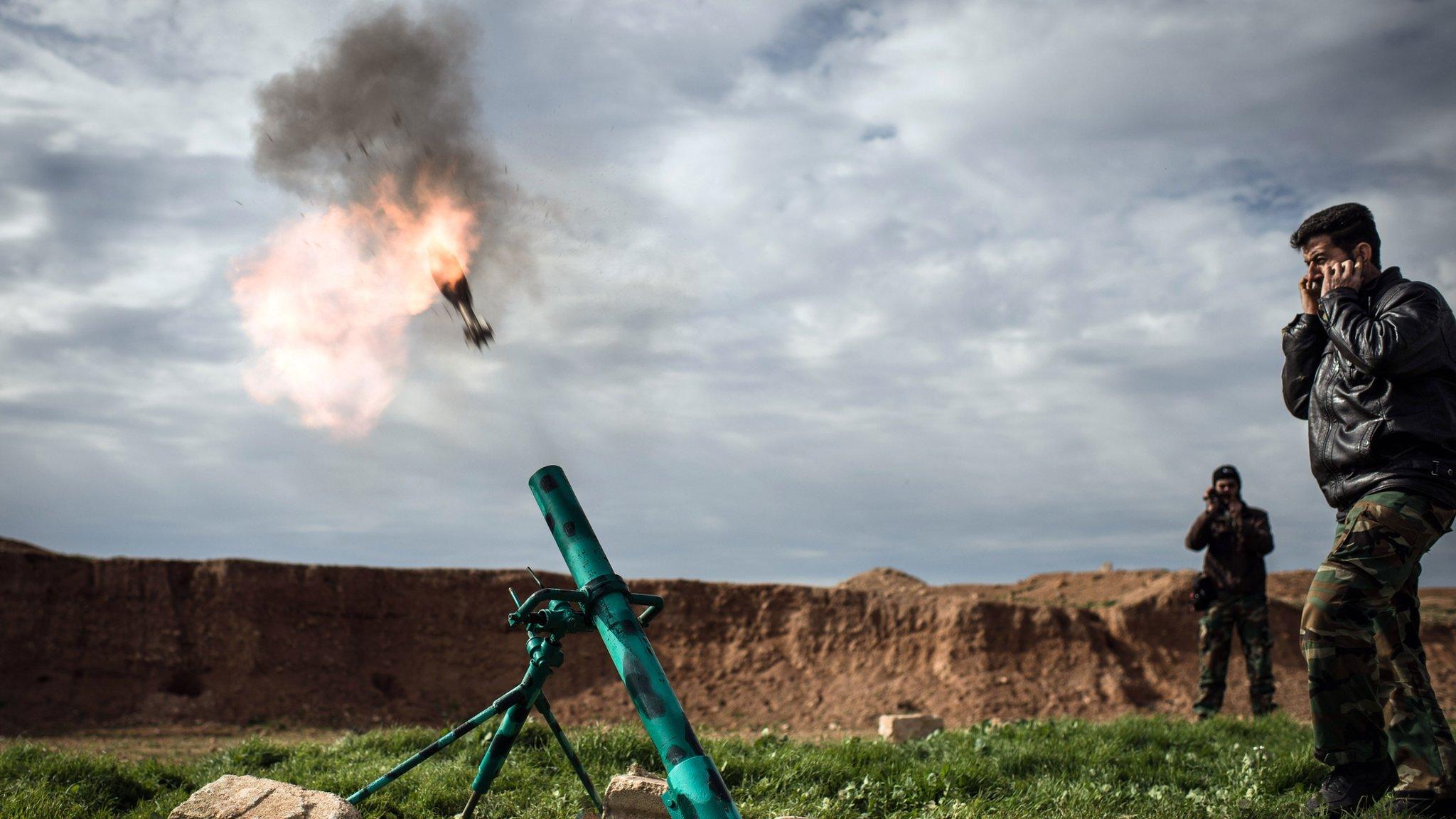Moving slowly across Obama's 'Red Line' on Syria
- Published
- comments

President Barack Obama has called chemical weapons attack a "game changer" but what will be the change?
America is inching toward action in Syria.
The Israelis say chemical weapons have been used. The UK says there is "limited but persuasive" evidence that sarin has been used.
Now the White House has sent a letter to two senators: "Our intelligence community does assess with varying degrees of confidence that the Syrian regime has used chemical weapons on a small scale in Syria."
That, Mr Obama has said for months, would be "a game changer". He has never exactly said, of course, how the game would change, but most people assume he meant military action of some sort.
White House officials have confirmed that if reports, external of past small scale use are confirmed, they would cross the president's red line. But he is not happy with the intelligence as it stands.
The letter goes on to say any such decisions depend on further "credible and corroborated facts that provide us with some degree of certainty".
High stakes
It was perhaps an irony Mr Obama was speaking at the official opening of the George W Bush Presidential Library in Texas today.
It is easy to forget now that Mr Obama was elected almost as an anti-Bush - calm, deliberative, slow to wrath. He regarded the Iraq War as a serious mistake, the result of a mixture of bad intelligence and an enthusiasm for war.

A doctor shot a video of an alleged victim of a Syrian nerve gas attack on 13 April in Aleppo
The letter is pointed about this: "Given the stakes involved, and what we have learned from our own recent experience, intelligence assessments alone are not sufficient."
Already Republicans are saying the red lines have been crossed, that the Assad regime will feel emboldened if there is not action, that the investigation must not be outsourced to the United Nations.
It is clear Mr Obama doesn't want to go to war in Syria. He regards it as too complex, too difficult, too uncertain.
American action there would have a huge impact on the perception of America in the region - confirming every image he wants to change.
Yet the US is, perhaps, moving slowly and cautiously toward taking action. There is no sense of a time scale and no real certainty about what might be done. This is very Obama: the caution, the desire to bring allies along, the reluctance to rush to judgment.
Enemies call it dithering. Even allies are sometimes impatient. I doubt whether any of that worries a president who says sending young men and women into action is the hardest thing he has ever had to do.
- Published25 April 2013
